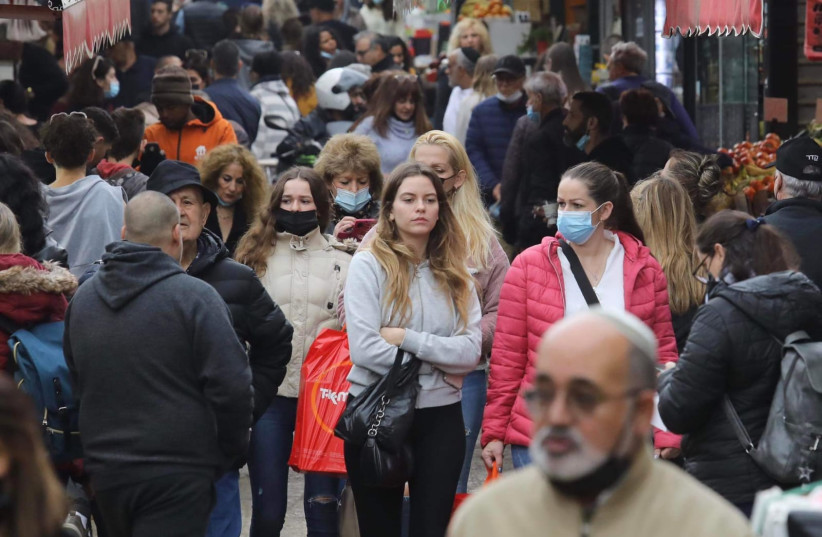For the first time in nearly two years, Israelis stepped out of their homes without a mask Sunday morning, after the indoor mask mandate came to an end Saturday evening.
First introduced close to the start of the COVID-19 pandemic in early 2020, Israel’s mask mandate had been a consistent staple of the pandemic-era restrictions. Even as Green Pass rules came and went and lockdowns were implemented and abandoned, the indoor mask mandate remained. Only for 10 days last June was it lifted, before being quickly reinstated as the then-dominant Delta variant began to sweep across the country.
As well as being Israel’s most consistent coronavirus restriction, the mask mandate was also one of the only restrictions still in place this April. Now, besides the compulsory masking requirement in medical facilities and aboard flights, virtually no restrictions remain.
Israel appears to be, for all intents and purposes, back to how it was before March 2020 and the outbreak of the pandemic.
But what do Israeli citizens think of this development?

Many seem unfazed, saying the mask mandate had never been properly enforced in the first place, and so the difference was not really noticeable to them either way.
“Basically, life goes on as normal, except now it’s actually legal to not wear a mask,” said Tel Aviv resident Elior. “People here already stopped wearing masks a year ago.”
“Israel wasn’t enforcing the mandate anyway,” said Jerusalemite Michael. “What point is there to a mandate that nobody follows?”
Others were more cautious, with one social media user saying she would be hanging onto her mask for a while longer, at least until it was clear coronavirus infections were not spiking after Passover.
“I don’t understand why it’s such a big deal to wear a mask indoors to protect the more vulnerable,” she said.
There are also positives to wearing masks beyond the protection they offer from COVID-19, and many people were taking this into account. A sandstorm swept across Israel on Sunday, coating many parts of the country with fine orange dust. The Health Ministry advised vulnerable people to limit the time they spend outdoors.
Masks have proven to be highly effective when it comes to minimizing exposure to pollutants. In countries such as Japan, they were a staple item long before the pandemic, with people wearing them to avoid the effects of hay fever, pollution and exhaust fumes in congested areas.
With masks so easily available in Israel today, some have chosen to follow this trend, donning masks on Sunday solely to protect themselves from the effects of the sandstorm.
With 2,490 new COVID-19 cases being reported by the Health Ministry on Sunday, and 218 people still hospitalized in serious condition, the pandemic is not yet a thing of the past. For many people, only time will dictate when they remove their masks, not government decisions.
University student Elisheva summed up the feelings of many Israelis regarding the mask mandate’s cancellation, saying cynically: “I can’t believe that as of 8:00 p.m. last night, coronavirus ceased to exist.”
